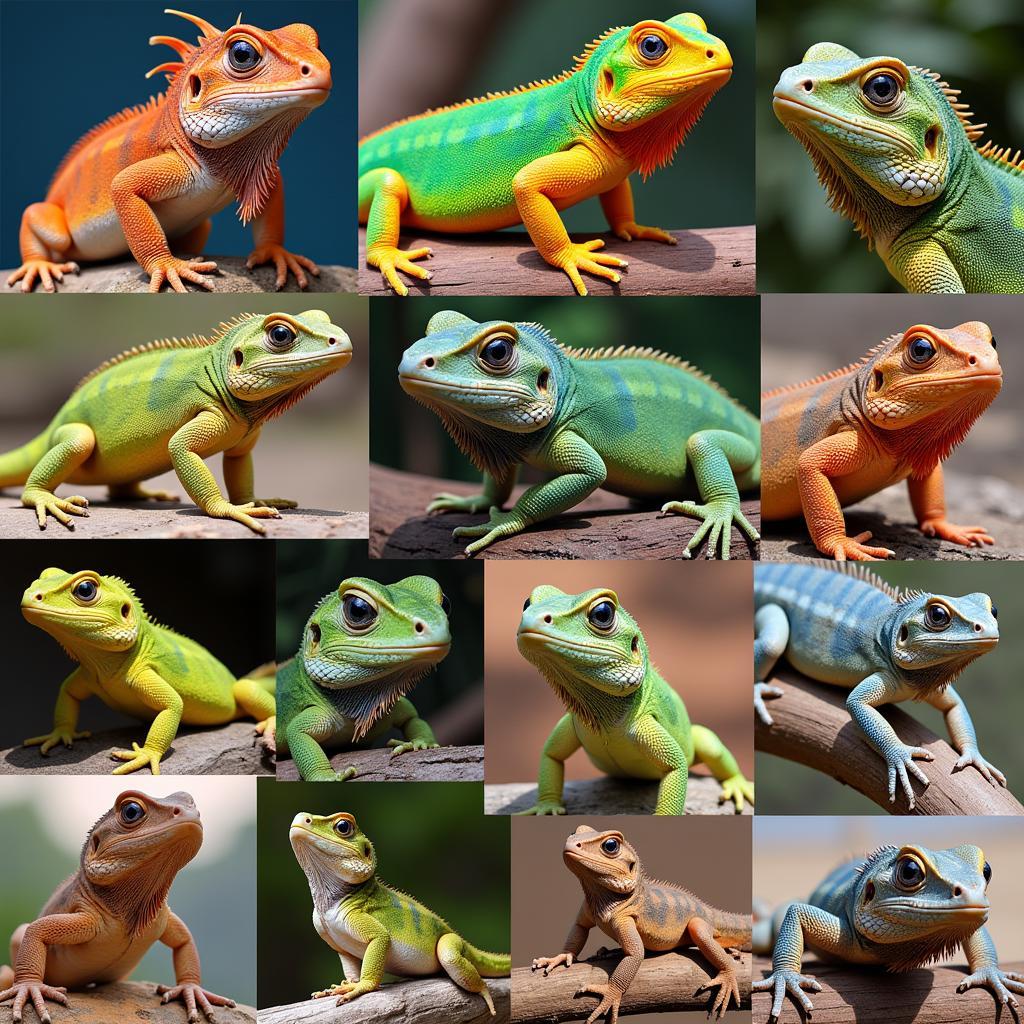Surprising African Food Facts You Need to Know
African food is as diverse as the continent itself. From the spicy stews of West Africa to the hearty grains of East Africa, there’s a world of culinary delights waiting to be discovered. This article will uncover some fascinating African Food Facts, exploring traditional ingredients, cooking methods, and the cultural significance of food across different regions. Did you know, for instance, that some African cultures consider certain insects a delicacy, offering a sustainable and nutrient-rich protein source? Let’s delve deeper into the rich tapestry of African cuisine.
Staple Foods Across the Continent: Beyond African Food Facts
While specific dishes vary widely, some staple foods form the backbone of many African diets. Grains like millet, sorghum, and maize are common, often prepared as porridge, couscous, or fufu. Cassava, yams, and plantains provide essential carbohydrates, while legumes like beans and lentils contribute protein. Many African cuisines also feature a rich array of vegetables, fruits, and spices, reflecting the continent’s diverse ecosystems.
Certain regions have unique staples. In West Africa, for example, fufu, made from pounded cassava or yams, is a popular accompaniment to soups and stews. East Africa is known for ugali, a stiff porridge made from maize flour. These staple foods are not just sources of sustenance but also play a vital role in social gatherings and cultural traditions.
After this overview of staple foods, let’s move to the next section where we will discover more intricate African food facts.
The Role of Spices and Flavor in African Cuisine
African cuisine is renowned for its bold and vibrant flavors, often achieved through the skillful use of spices. From the fiery peri-peri of Southern Africa to the fragrant berbere spice blend of Ethiopia, these seasonings add depth and complexity to a wide range of dishes. In North Africa, the warming spices of cumin, coriander, and cinnamon infuse tagines and couscous with aromatic richness. West African cuisine often features the earthy notes of peanuts and palm oil, while East African dishes may incorporate the tangy flavors of tamarind and ginger. These spices not only enhance the taste but also contribute to the distinctive character of each region’s culinary traditions.
It’s also important to note the influence of trade routes and cultural exchange on the development of African food. For centuries, spices and ingredients have traveled across the continent, enriching and diversifying local culinary practices.
African Food Facts: Exploring Regional Specialties
Each region of Africa boasts its own unique culinary specialties, reflecting the local environment, cultural influences, and historical context. In North Africa, the influence of Mediterranean cuisine is evident in dishes like couscous, tagines, and pastries. West Africa offers a tantalizing array of spicy stews, such as peanut soup and jollof rice. East African cuisine is known for its hearty stews, grilled meats, and flavorful vegetarian dishes. Southern Africa features a blend of indigenous and colonial influences, resulting in dishes like bobotie and biltong. These regional specialties offer a glimpse into the rich tapestry of African cultures.
While researching these regional dishes, I came across an article about the African Hawk vessel, a fascinating piece of history related to ancient trade and cultural exchange. See the African Hawk vessel.
African Food Facts: The Cultural Significance of Food
Food plays a central role in African cultures, far beyond its nutritional value. Meals are often communal affairs, bringing families and communities together to share food and conversation. Specific dishes are associated with celebrations, rituals, and social gatherings, symbolizing unity and cultural identity. From weddings and funerals to religious festivals and harvest celebrations, food serves as a powerful expression of cultural values and traditions.
“Food is not just about sustenance in Africa,” explains Dr. Abena Osei, a renowned anthropologist specializing in African cultures. “It’s a way of life, a form of communication, and a powerful symbol of cultural heritage.”
Even the seemingly strange African anaconda 134 feet has a role in certain cultural narratives. It might sound unbelievable, but it reflects the rich storytelling tradition linked with nature.
Conclusion: A Culinary Journey Through Africa
From the spicy stews of West Africa to the hearty grains of East Africa, African food offers a captivating culinary journey. These African food facts reveal a complex and diverse culinary landscape, shaped by history, culture, and the continent’s rich natural resources. Exploring African cuisine is not just about trying new flavors, but also about understanding the deep cultural significance of food in African societies. So, embark on this culinary adventure and discover the rich tapestry of African flavors.
FAQ
-
What are some common ingredients in African food?
- Common ingredients include grains like millet and sorghum, starchy roots like cassava and yams, legumes, vegetables, fruits, and a variety of spices.
-
What is the significance of food in African culture?
- Food plays a central role in social gatherings, rituals, and celebrations, symbolizing unity and cultural identity.
-
What are some popular African dishes?
- Popular dishes include jollof rice, peanut soup, tagines, couscous, and nyama choma.
-
Are there any unique dietary practices in Africa?
- Yes, some cultures practice vegetarianism or have specific dietary restrictions based on religious or cultural beliefs.
-
Where can I learn more about African food?
- You can find more information online, in cookbooks, and by visiting African restaurants.
-
Is African food spicy?
- The level of spice varies depending on the region and dish, but many African cuisines incorporate flavorful spices.
-
What are some healthy African food options?
- Many African dishes are naturally healthy, featuring fresh vegetables, lean proteins, and whole grains.
More Questions?
If you have more questions or need assistance, please contact us at:
Phone Number: +255768904061
Email: [email protected]
Address: Mbarali DC Mawindi, Kangaga, Tanzania.
We have a 24/7 customer service team.
You may also be interested in learning more about African elephants only have 4 teeth or the African congo fruit for weight loss. For information on African killer ants, click the link.

